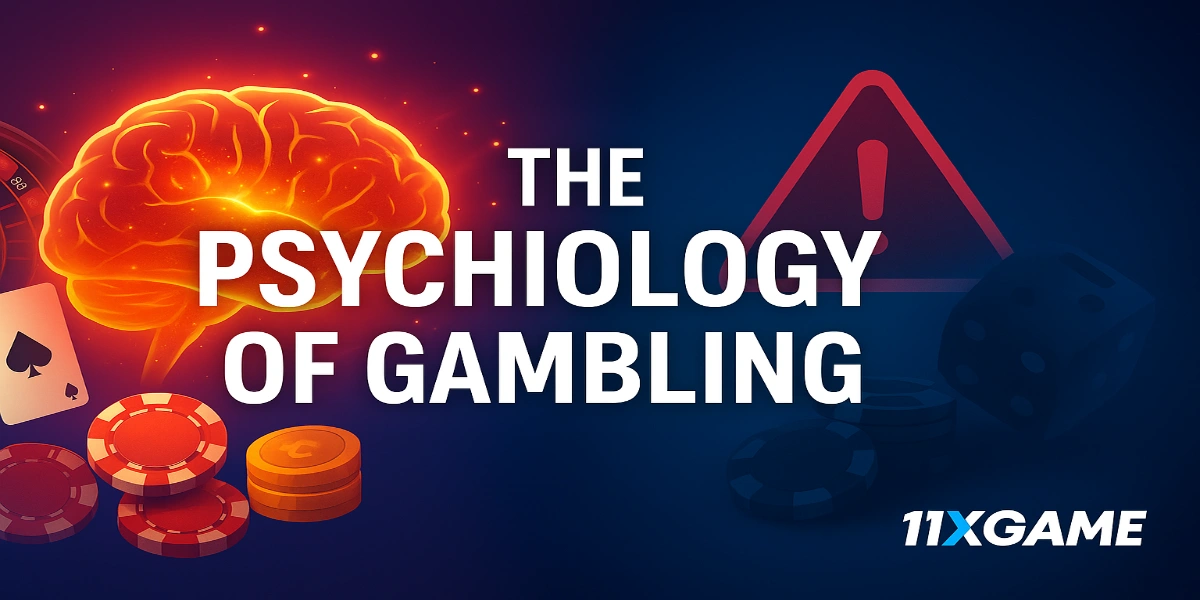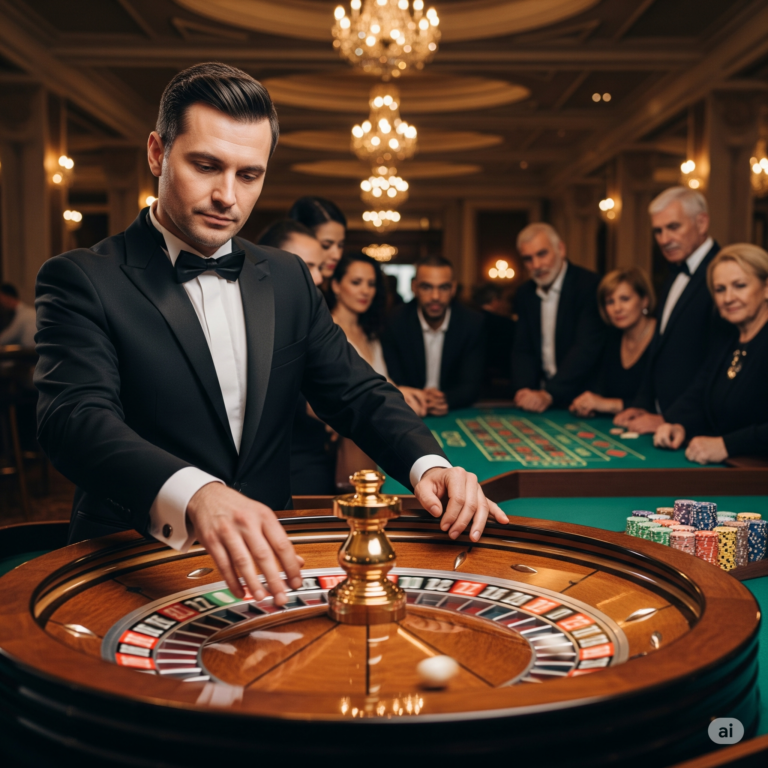The Psychology of Gambling: Why Players Take Risks
Introduction
Why do people take risks in gambling, even when the odds are stacked against them? 🎲 The answer lies in the psychology of gambling—a fascinating mix of emotions, decision-making biases, and human behavior patterns. From the thrill of uncertainty to the hope of a big win, gambling appeals to deep psychological triggers that affect how players think and act.
In this blog, we’ll explore the psychology of gambling, uncover why players take risks, and share insights on how to enjoy betting responsibly.
The Thrill of Uncertainty
At its core, gambling is built around uncertainty. The unknown outcome of a bet—whether it’s a cricket match, Teen Patti game, or roulette spin—creates excitement. Psychologists call this the “anticipation effect”.

- Unpredictability fuels dopamine: Studies show that the brain releases dopamine (the “feel-good” chemical) not just when we win, but when we anticipate a possible win.
- Near-misses feel like wins: Even when players lose narrowly, their brain often reacts as if they “almost” won—encouraging them to keep playing.
- Entertainment, not just profit: Many players gamble because of the adrenaline rush, not only for money.
Cognitive Biases That Influence Gambling
“The psychology of gambling shows that human brains are wired with certain biases that make gambling attractive, even risky.”
1. The Gambler’s Fallacy
Many players believe that if something happens more frequently now, it’s less likely later. For example, in roulette, if red appears five times in a row, they assume black is “due.” In reality, each spin is independent.
2. Illusion of Control
Players often believe they can control outcomes through strategies or rituals, especially in skill-based games like poker or Teen Patti. While skill does matter, chance remains a powerful factor.
3. Availability Heuristic
When people hear about someone winning big, they overestimate their own chances of winning. Casinos and betting sites highlight success stories, which strengthen this bias.
4. Chasing Losses
Many gamblers fall into the trap of thinking: “If I just play one more round, I’ll recover my losses.” Unfortunately, this often leads to bigger risks and heavier losses.
Emotional Drivers Behind Risk-Taking
Gambling is not just about numbers; it’s deeply tied to human emotions.
- Excitement and Escape: Some players gamble as an escape from stress or boredom. The thrill becomes a distraction from real-life worries.
- Social Influence: In India, games like Teen Patti or Rummy are often played during festivals like Diwali. The cultural and social aspect encourages participation.
- Hope and Optimism: Even when odds are low, players hope for a “life-changing win.” Hope can sometimes outweigh logic.
The Role of Rewards and Reinforcement
Casinos and betting platforms use psychological reinforcement to keep players engaged:
- Small wins, big motivation: Even minor wins create positive reinforcement, making players want to continue.
- Random rewards: Like social media notifications, gambling rewards are unpredictable—making them more addictive.
- Near misses: A missed win by a small margin makes players feel “close,” motivating them to try again.
Cultural Perspective: Gambling in India
In India, gambling is not just about casinos or online betting—it has cultural roots:
- Teen Patti and Rummy are traditionally played during Diwali as a form of celebration and bonding.
- Cricket betting remains one of the most popular forms of betting, with the IPL driving huge interest.
- Horse racing is one of the few betting activities legally recognized in many states.
This cultural acceptance sometimes makes risk-taking feel “normal,” even when it carries financial dangers.
Why Players Take Bigger Risks
So, what pushes some gamblers to risk more than they can afford?
- Adrenaline Rush: The bigger the risk, the stronger the thrill.
- Overconfidence: Players believe their knowledge of a sport or game increases their chances.
- Loss Recovery Attempts: Risking more to recover previous losses.
- Peer Pressure: Playing in groups, especially in festivals or social settings, can encourage higher stakes.
Responsible Gambling: Balancing Psychology and Safety
While gambling psychology explains why risks are tempting, it’s vital to gamble responsibly.

Tips for Safer Play:
- Set a Budget: Decide your spending limit before you start.
- Separate Entertainment from Income: Treat gambling as a game, not a way to earn money.
- Take Breaks: Don’t let excitement cloud judgment.
- Avoid Chasing Losses: Accept losses as part of the game.
- Play on Legal Platforms: Choose trusted sites that promote responsible play.
Conclusion on Psychology of gambling
The psychology of gambling reveals why so many people are drawn to risk-taking—it’s a blend of emotions, cognitive biases, and cultural influences. While the thrill can be enjoyable, it’s essential to remember that gambling should remain a form of entertainment, not a source of guaranteed profit.
By understanding these psychological triggers and practicing responsible gambling, players can enjoy the excitement while staying safe.
FAQs- Psychology of gambling
1. Why do people keep gambling even after losing?
Because of psychological biases like the “gambler’s fallacy” and the hope of recovering losses. The brain also releases dopamine during anticipation, keeping players hooked.
2. Is gambling addictive?
Yes, for some individuals, gambling can become addictive due to psychological reinforcement, emotional triggers, and risk-taking tendencies. Responsible play is crucial.
3. Do skill-based games like Teen Patti or Rummy reduce risk?
While skill plays a role, luck is still a major factor. No strategy can eliminate risk completely.
4. What is the most common psychological mistake in gambling?
The gambler’s fallacy—believing past outcomes affect future ones—is one of the most common errors players make.
“Thanks for reading! For more betting tips, reviews, and updates, visit us at 11xGame and make your sports experience even more exciting.”






